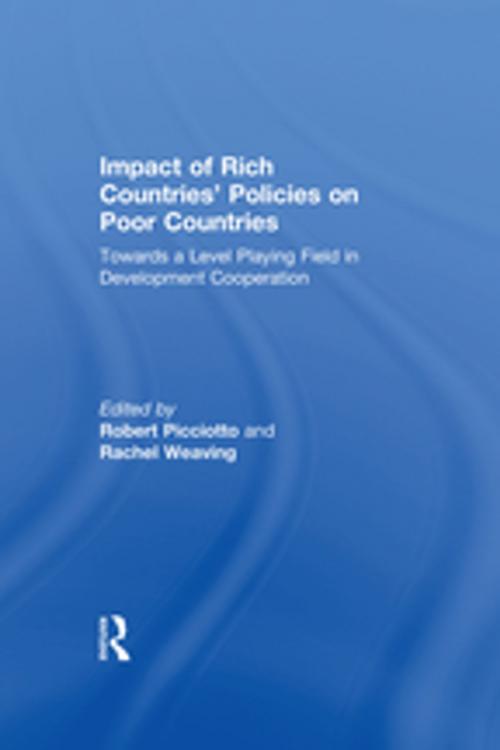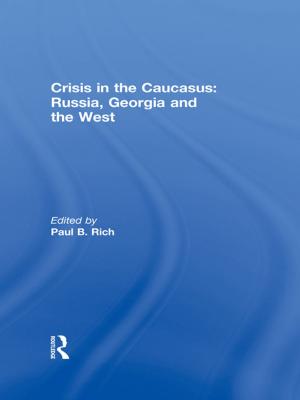Impact of Rich Countries' Policies on Poor Countries
Towards a Level Playing Field in Development Cooperation
Business & Finance, Economics, Economic Development| Author: | ISBN: | 9781351513333 | |
| Publisher: | Taylor and Francis | Publication: | December 2, 2017 |
| Imprint: | Routledge | Language: | English |
| Author: | |
| ISBN: | 9781351513333 |
| Publisher: | Taylor and Francis |
| Publication: | December 2, 2017 |
| Imprint: | Routledge |
| Language: | English |
"All United Nations heads of state have endorsed the Millennium Development Goals, which aim to reduce the incidence of absolute poverty by half by 2015. To reach those goals, growth in developing countries will have to be twice the levels achieved in the 1990s for the next fifteen years. This will require, at the least, new rules of the development game.At present, rich countries exercise control over the institutions that oversee the global economy. This volume addresses a curiously neglected area of policy analysis--the impact of rich countries' policies on the global poor. Four-fifths of the world's people subsist on one-fifth of the world's income. One-fifth live in abject poverty, on less than one dollar a day. The main responsibility for reducing poverty reduction naturally rests with developing countries. But globalization means that rich countries must also play their part.Industrialized countries dominate global environmental management through the heavy ecological footprint of their production and consumption patterns. Adjustments of their policies by rich countries may be as critical as government reforms in poor countries. Past research has concentrated on policy adjustments that need to be made within poor countries to aid effectiveness, and trade reform.Relatively little is known about the economic consequences of migration, control of intellectual property, and environmental regulations. Even less research has been done on the interaction and combined impact of the full spectrum of rich countries' policies on the economy, society, and ecology in poor countries. These knowledge gaps inhibit rational debate, let alone evidence-based policymaking that may lead towards sustainable and equitable growth. At current levels, aid alone cannot deliver adequate progress towards the Millennium Development Goals.The surveys by eminent development analysts and practitioners included in this volume sketch a road map for a better understanding of the"
"All United Nations heads of state have endorsed the Millennium Development Goals, which aim to reduce the incidence of absolute poverty by half by 2015. To reach those goals, growth in developing countries will have to be twice the levels achieved in the 1990s for the next fifteen years. This will require, at the least, new rules of the development game.At present, rich countries exercise control over the institutions that oversee the global economy. This volume addresses a curiously neglected area of policy analysis--the impact of rich countries' policies on the global poor. Four-fifths of the world's people subsist on one-fifth of the world's income. One-fifth live in abject poverty, on less than one dollar a day. The main responsibility for reducing poverty reduction naturally rests with developing countries. But globalization means that rich countries must also play their part.Industrialized countries dominate global environmental management through the heavy ecological footprint of their production and consumption patterns. Adjustments of their policies by rich countries may be as critical as government reforms in poor countries. Past research has concentrated on policy adjustments that need to be made within poor countries to aid effectiveness, and trade reform.Relatively little is known about the economic consequences of migration, control of intellectual property, and environmental regulations. Even less research has been done on the interaction and combined impact of the full spectrum of rich countries' policies on the economy, society, and ecology in poor countries. These knowledge gaps inhibit rational debate, let alone evidence-based policymaking that may lead towards sustainable and equitable growth. At current levels, aid alone cannot deliver adequate progress towards the Millennium Development Goals.The surveys by eminent development analysts and practitioners included in this volume sketch a road map for a better understanding of the"















